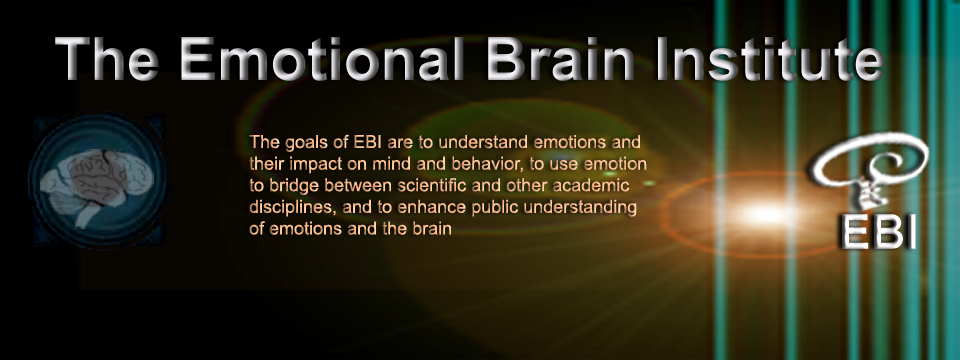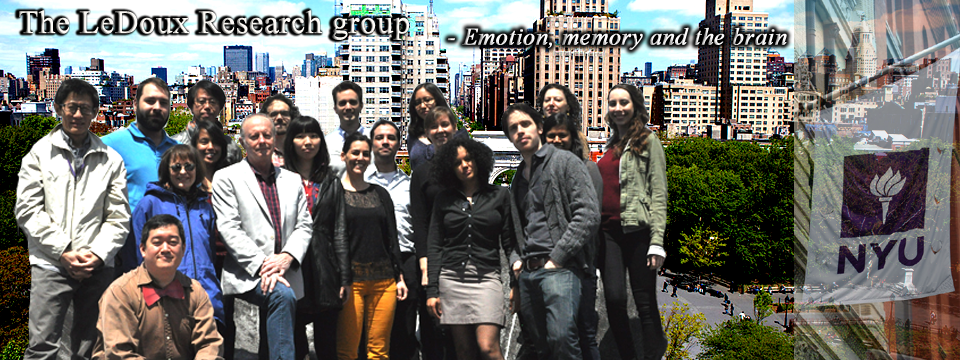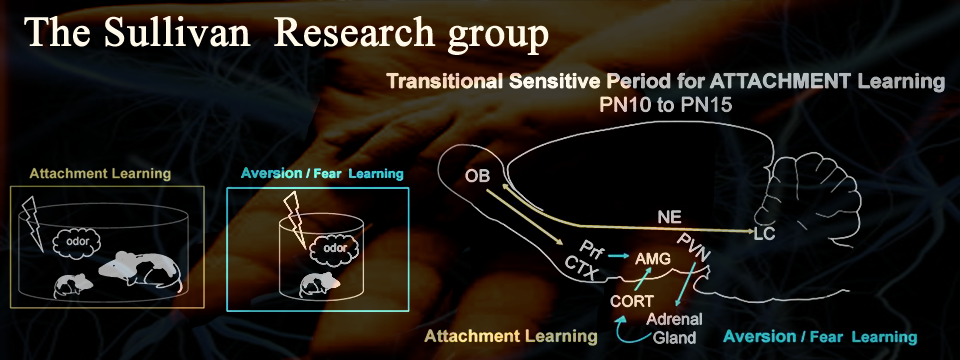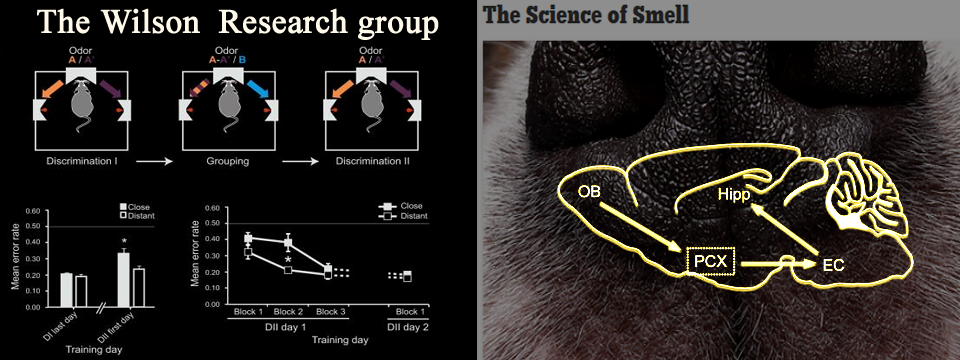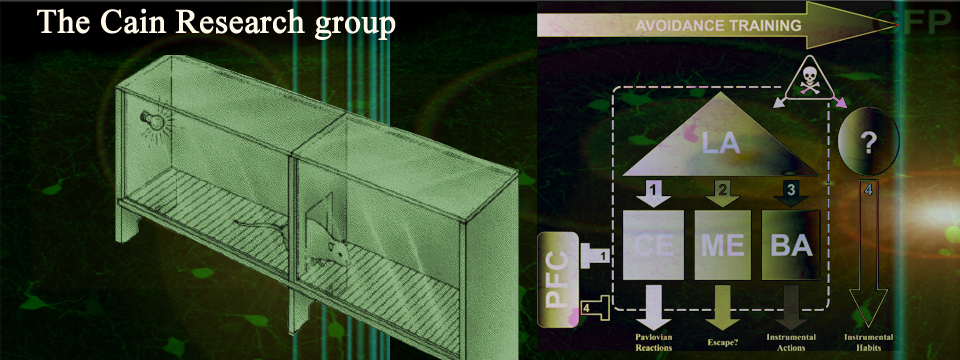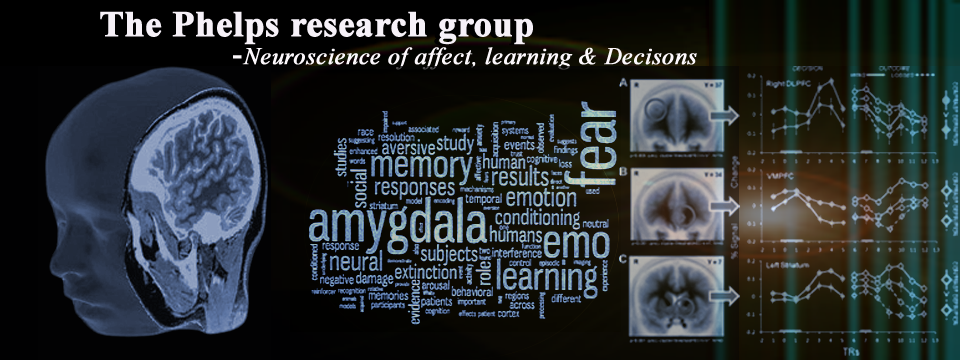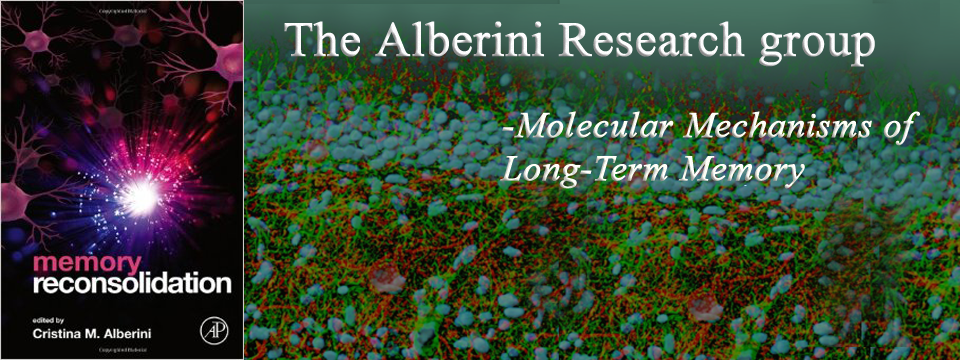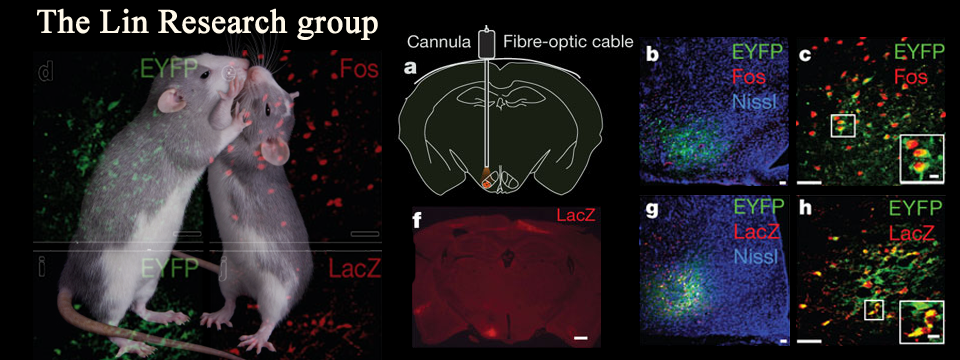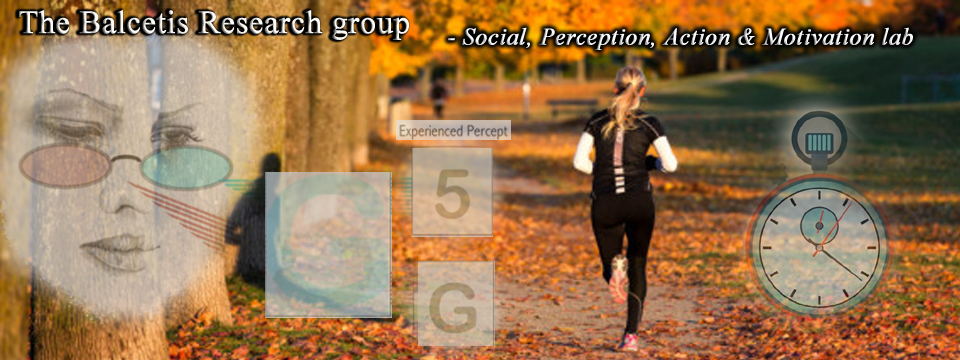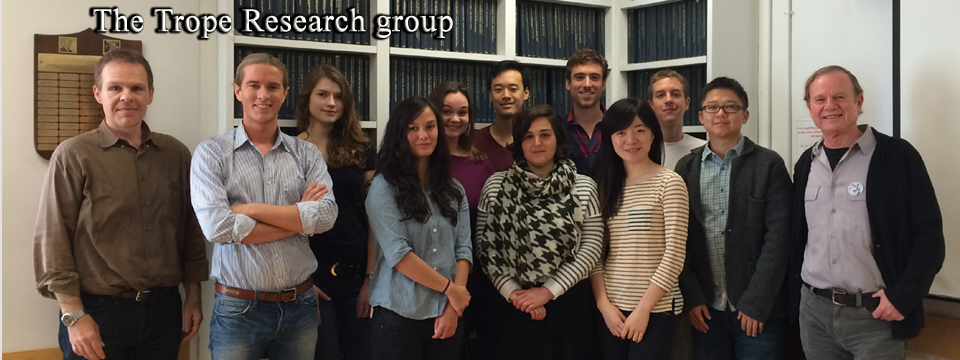PRIMARY RESEARCHERS
Dr. Christopher Cain
Emotional Brain Institute; Nathan S. Kline Institute for Psychiatric Research; New York University Langone School of Medicine

Christopher Cain is a Research Scientist at NKI and a Research Assistant Professor of Child and Adolescent Psychiatry at the NYU/Langone School of Medicine. His research is focused on the neural circuits and mechanisms important for learning to effectively cope with fear. Pavlovian fear conditioning, fear extinction and instrumental avoidance conditioning are the major animal models studied in Dr. Cain’s laboratory. He is particularly interested in how these learning processes interact during the fear recovery process. Pharmacology, electrophysiology, lesions and imaging of immediate-early genes are some of the techniques used in his laboratory. Dr. Cain’s research goal is to discover ways to improve the treatment of human pathological fear through studies of basic learning processes in animals.
Visit Cain Lab
Dr. Joseph E. LeDoux
Emotional Brain Institute; Center for Neural Science at NYU; New York University Langone School of Medicine

Joseph LeDoux is the director of EBI at NYU and is also a University Professor, Henry and Lucy Moses Professor of Science, Professor of Neural Science and Psychology, and Professor of Child and Adolescent Psychiatry at the NYU/Langone School of Medicine. His research is focused on the relation between emotion and memory, and his main laboratory is in the Center for Neural Science at NYU. LeDoux's books, The Emotional Brain and Synaptic Self, have been translated into numerous languages and are used to guide researchers and clinicians in their efforts to understand and treat emotions. His work at NYU and the EBI aims to build on his past research using animal models to unlock the secrets of emotions, especially fear and anxiety.
Visit LeDoux Lab
Dr. Robert M. Sears
Emotional Brain Institute; Center for Neural Science of NYU

Robert Sears earned his BA in Biology & Philosophy from Hendrix College in Conway, AR in 2001. He then joined the lab of Dr. Eric Nestler at UT Southwestern in Dallas, TX to study the molecular and circuit mechanisms underlying the motivation to seek and consume food. In 2009, he received his PhD from Yale's Interdepartmental Neuroscience Program, where he studied the hypothalamic neuropeptide melanin-contentrating hormone (MCH) and its influence on motivational brain circuits with Dr. Ralph DiLeone. In 2014, Dr. Sears completed his training as a post-doctoral fellow in Dr. Joseph LeDoux's laboratory at NYU's Center for Neural Science, where he studied the orexin system in aversive learning and the neural circuitry of avoidance behavior. Following that, he joined the Nathan Kline Institute as a Research Scientist.
Visit Sears Lab
Dr. Regina Sullivan
Emotional Brain Institute; Nathan S. Kline Institute for Psychiatric Research; New York University Langone School of Medicine

Regina Sullivan is a Research Scientist at NKI and a Professor of Child and Adolescent Psychiatry at the NYU/Langone School of Medicine. Her research is focused on the ontogeny of fear and the amygdala in infant rats, she is particularly interested in unique early life constraints on fear learning and how this strengthens pups' attachment to their mother. Her lab's current research is characterizing how the simple presence of the mother can switch olfactory fear conditioning to odor preference learning through modulation of corticosterone, the amygdala and the olfactory circuit. Her work has also demonstrated how early life emotional experiences can have lifelong consequences, and she is attempting to reverse the negative aspects of these early life experiences. Dr Sullivan's unique and exciting research program involves both animal models and human infant work.
Visit Sullivan Lab
Dr. Catia Teixeira
Catia Teixeira
Emotional Brain Institute; Nathan S. Kline Institute for Psychiatric Research; New York University Langone School of Medicine

Catia M. Teixeira received her BS in Biology from the Universidade de Evora in 2003 (Portugal). Following that, she attended the Graduate Program in Basic and Applied Biology at the Universidade do Porto (Portugal). As part of the G.A.B.B.A. PhD program, she conducted research in the laboratory of Dr. Paul Frankland (UofT, Canada) where she studied the cellular and molecular mechanisms of memory formation. She earned her PhD in 2007. Dr. Teixeira then joined the laboratory of Dr. Eduardo Soriano in Barcelona where she studied how dysregulation of genes involved in neuronal development affect adult behavior. She continued her post-doctoral training at Columbia University with Dr. Mark Ansorge where her studies and research focused on the developmental critical periods during which exposure to commonly prescribed/abused drugs affect adult-behavior. In 2015, she joined the Nathan Kline Institute as a Research Scientist.
Visit Teixeira Lab
Dr. Donald Wilson
Emotional Brain Institute; Nathan S. Kline Institute for Psychiatric Research; New York University Langone School of Medicine
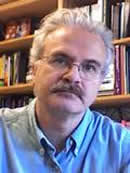
Donald Wilson is the director of EBI at NKI and is also a Research Scientist at NKI and a Professor of Child and Adolescent Psychiatry at the NYU/Langone School of Medicine. His research is focused on perceptual learning, sensory gating, object coding, and hedonic coding in the mammalian olfactory system. He is particularly interested in how experience can shape sensory coding resulting in changes in perceptual acuity as well as associating emotional meaning to sensory objects. The theoretical underpinnings of this approach are described in his book with Richard Stevenson “Learning to Smell” (Johns Hopkins University Press). His work explores these processes across the lifespan, from early development to dementia. His lab’s current work includes examination of sensory cortical contributions to fear generalization, the role of sleep in consolidation of sensory memory, and the impact of Alzheimer’s disease on sensory processing.
Visit Wilson Lab
Dr. Vinod K. Yaragudri
Emotional Brain Institute; Nathan S. Kline Institute for Psychiatric Research; New York University Langone School of Medicine
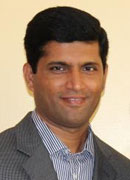
Vinod Yaragudri obtained his bachelor degree (1994) in Biology and Chemistry, and a master degree (1996) in Biochemistry from Karnatak University, India. He received his Ph.D (Neurochemistry) in 2002 from the National Institute of Mental Health and Neuroscience (NIMHANS), India, for studies on serotonergic receptors in postmortem brains of alcoholic, bipolar and schizophrenic patients, and for delineating the molecular mechanisms of mood stabilizers. He joined NKI in 2002 for postdoctoral studies in Dr. Hungundís lab. His research is funded by both private sources and the National Institutes of Health (NIH). Dr. Yaragudri is also Research Assistant Professor in the Department of Child and Adolescent Psychiatry at NYU School of Medicine.
Visit Yaragudri Lab
AFFILILIATED RESEARCHERS
Dr. Dayu Lin
New York University Langone School of Medicine

Dayu Lin is an Assistant Professor of Psychiatry at the NYU/Langone School of Medicine. Her research focuses on social behaviors such as mating, fighting, defense, predation and parenting, which are indispensable and ubiquitous across the animal kingdom. Research in her laboratory centers on understanding the neural circuits underlying these powerful behaviors in a genetically tractable model system - mice. She is interested in investigating how the sensory information is relayed, integrated, extracted and diverged to ultimately cause the behavioral output. Various genetic engineering, tracing, functional manipulation, in vivo electrophysiological recording and computational tools are combined to dissect the neural circuits in great detail.
Visit Lin Lab
PRIMARY RESEARCHERS
Dr. Joseph E. LeDoux
Emotional Brain Institute; Center for Neural Science at NYU; New York University Langone School of Medicine

Joseph LeDoux is the director of EBI at NYU and is also a University Professor, Henry and Lucy Moses Professor of Science, Professor of Neural Science and Psychology, and Professor of Child and Adolescent Psychiatry at the NYU/Langone School of Medicine. His research is focused on the relation between emotion and memory, and his main laboratory is in the Center for Neural Science at NYU. LeDoux's books, The Emotional Brain and Synaptic Self, have been translated into numerous languages and are used to guide researchers and clinicians in their efforts to understand and treat emotions. His work at NYU and the EBI aims to build on his past research using animal models to unlock the secrets of emotions, especially fear and anxiety.
Visit LeDoux Lab
Dr. Elizabeth A. Phelps

Liz Phelps is Pershing Square Professor of Human Neuroscience and DIB Committee Co-Chair. The primary inspiration behind her research is the observation that emotions color our lives, and even subtle, everyday variations in our emotional experience can alter our thoughts and actions. By uncovering the impact of emotion and affect on cognition, we aim to both enhance our understanding of cognition broadly and provide insights into social processes and psychological disorders.
To address this topic, the Phelips lab uses a Human Neuroscience approach, combining insights from sub-disciplines of psychology and neuroscience to understand the mind and brain. Along these lines, we try to let the questions drive our research, not the techniques or traditional definitions of research areas. We have used a number of techniques (behavioral studies, physiological measurements, hormone assays, pharmacology, microbiome assays, brain-lesion studies, functional magnetic resonance imaging, computational modeling) and have worked with a number of collaborators in different domains (social, clinical, and cognitive psychologists, psychiatrists, neuroscientists, neurologists, economists, physicists, computational neuroscientists). It is our hope that having focused questions and a broad approach to answering these questions enhances both the research quality and the relevance and appeal of our work.
Visit Phelps Lab
Dr. Cristina M. Alberini
Emotional Brain Institute; Center for Neural Science of NYU

Cristina M. Alberini is a Professor of Neural Science at Center for Neural Science of NYU. Her work focuses on understanding the molecular mechanisms that underlie long-term memory formation, with particular emphasis on the processes of consolidation and reconsolidation. She has been awarded the Hirschl/Weil-Caulier Career Scientist Award and the NARSAD Independent Investigator Award. She is a member of the Council and current president of the Molecular and Cellular Cognition Society (MCCS). In 2009, she was awarded with the Golgi Medal, given by the Golgi Foundation in Brescia, Italy, for contributions to the field of neuroscience.
Visit Alberini Lab
Dr. Catherine Hartley
Emotional Brain Institute; Department of Psychology at NYU
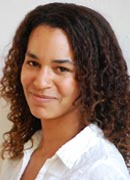
Catherine Hartley is an Assistant Professor of Psychology at NYU. Research in her laboratory focuses on characterizing the diverse learning and decision-making processes that support adaptive motivated behavior. Specifically, she focuses on understanding the cognitive, computational, and neural processes engaged to predict positive and negative environmental events and evaluate potential responses, as well as how these processes change over the course of development and vary across individuals. She uses an array of methodological techniques to pursue these questions including neuroimaging, psychophysiology, computational modeling, and genetics, in conjunction with experimental paradigms that draw upon both animal learning and economic decision theories. She received her B.S. in Symbolic Systems from Stanford University and her PhD in Psychology from New York University.
Visit Sears Lab
AFFILILIATED RESEARCHERS
Dr. Emily Balcetis
Psychology of New York University

Emily Balcetis is an Assistant Professor of Psychology at NYU. She is interested in the conscious and nonconscious ways people fundamentally orient to the world. In particular, she focuses on how the motivations, emotions, needs, and goals people hold impact the basic ways people perceive, interpret, and ultimately react to information around them. She advocates for an interactive cognitive system where psychological states constrain the basic manner in which we perceive and react to our worlds. Her work, then, explores motivational biases in visual and social perception and the consequential effects for behavior and navigation of the social world. In doing so, her research represents an intersection among social psychology, judgment and decision-making, social cognition, and perception.
Visit Balcetis Lab
Dr. Yaacov Trope
Psychology of New York University

Yaacov Trope is a Professor of Psychology at NYU. His research interests focus on the cognitive and motivational mechanisms underlying people's judgments and decisions about themselves and others. His research on cognitive mechanisms attempts to distinguish between controllable and uncontrollable processes that produce overconfident judgments, and his research on motivational mechanisms investigates how wishes and desires influence the process of testing hypotheses about self and others. These questions are investigated in several content areas, including stereotyping, personality trait inferences, and self-evaluation.
Visit Trope Lab
Mark Wing-Davey
Tisch School of the Arts at NYU

Mark Wing-Davey†first came to prominence in the United States in 1992 with his celebrated production of Caryl Churchill’s Mad Forest at New York Theatre Workshop. Since then he has worked extensively internationally and in New York for Labyrinth Theater Company, Lincoln Center, Manhattan Theatre Club, NYTW, Playwrights Horizons, and The Public Theater/ New York Shakespeare Festival. He directed Sarah Ruhl’s Passion Play at the Goodman Theatre, Yale Repertory Theatre, and for Epic Theater Ensemble in a site-specific production at the Irondale Center in Brooklyn. He is an Arts Professor at New York University’s Tisch School of the Arts and chair of its Graduate Acting Program.
PRIMARY RESEARCHERS
Dr. Christopher Cain
Emotional Brain Institute; Nathan S. Kline Institute for Psychiatric Research; New York University Langone School of Medicine

Christopher Cain is a Research Scientist at NKI and a Research Assistant Professor of Child and Adolescent Psychiatry at the NYU/Langone School of Medicine. His research is focused on the neural circuits and mechanisms important for learning to effectively cope with fear. Pavlovian fear conditioning, fear extinction and instrumental avoidance conditioning are the major animal models studied in Dr. Cain’s laboratory. He is particularly interested in how these learning processes interact during the fear recovery process. Pharmacology, electrophysiology, lesions and imaging of immediate-early genes are some of the techniques used in his laboratory. Dr. Cain’s research goal is to discover ways to improve the treatment of human pathological fear through studies of basic learning processes in animals.
Visit Cain Lab
Dr. Joseph E. LeDoux
Emotional Brain Institute; Center for Neural Science at NYU; New York University Langone School of Medicine

Joseph LeDoux is the director of EBI at NYU and is also a University Professor, Henry and Lucy Moses Professor of Science, Professor of Neural Science and Psychology, and Professor of Child and Adolescent Psychiatry at the NYU/Langone School of Medicine. His research is focused on the relation between emotion and memory, and his main laboratory is in the Center for Neural Science at NYU. LeDoux's books, The Emotional Brain and Synaptic Self, have been translated into numerous languages and are used to guide researchers and clinicians in their efforts to understand and treat emotions. His work at NYU and the EBI aims to build on his past research using animal models to unlock the secrets of emotions, especially fear and anxiety.
Visit LeDoux Lab
Dr. Robert M. Sears
Emotional Brain Institute; Center for Neural Science of NYU

Robert Sears earned his BA in Biology & Philosophy from Hendrix College in Conway, AR in 2001. He then joined the lab of Dr. Eric Nestler at UT Southwestern in Dallas, TX to study the molecular and circuit mechanisms underlying the motivation to seek and consume food. In 2009, he received his PhD from Yale's Interdepartmental Neuroscience Program, where he studied the hypothalamic neuropeptide melanin-contentrating hormone (MCH) and its influence on motivational brain circuits with Dr. Ralph DiLeone. In 2014, Dr. Sears completed his training as a post-doctoral fellow in Dr. Joseph LeDoux's laboratory at NYU's Center for Neural Science, where he studied the orexin system in aversive learning and the neural circuitry of avoidance behavior. Following that, he joined the Nathan Kline Institute as a Research Scientist.
Visit Sears Lab
Dr. Regina Sullivan
Emotional Brain Institute; Nathan S. Kline Institute for Psychiatric Research; New York University Langone School of Medicine

Regina Sullivan is a Research Scientist at NKI and a Professor of Child and Adolescent Psychiatry at the NYU/Langone School of Medicine. Her research is focused on the ontogeny of fear and the amygdala in infant rats, she is particularly interested in unique early life constraints on fear learning and how this strengthens pups' attachment to their mother. Her lab's current research is characterizing how the simple presence of the mother can switch olfactory fear conditioning to odor preference learning through modulation of corticosterone, the amygdala and the olfactory circuit. Her work has also demonstrated how early life emotional experiences can have lifelong consequences, and she is attempting to reverse the negative aspects of these early life experiences. Dr Sullivan's unique and exciting research program involves both animal models and human infant work.
Visit Sullivan Lab
Dr. Catia Teixeira
Catia Teixeira
Emotional Brain Institute; Nathan S. Kline Institute for Psychiatric Research; New York University Langone School of Medicine

Catia M. Teixeira received her BS in Biology from the Universidade de Evora in 2003 (Portugal). Following that, she attended the Graduate Program in Basic and Applied Biology at the Universidade do Porto (Portugal). As part of the G.A.B.B.A. PhD program, she conducted research in the laboratory of Dr. Paul Frankland (UofT, Canada) where she studied the cellular and molecular mechanisms of memory formation. She earned her PhD in 2007. Dr. Teixeira then joined the laboratory of Dr. Eduardo Soriano in Barcelona where she studied how dysregulation of genes involved in neuronal development affect adult behavior. She continued her post-doctoral training at Columbia University with Dr. Mark Ansorge where her studies and research focused on the developmental critical periods during which exposure to commonly prescribed/abused drugs affect adult-behavior. In 2015, she joined the Nathan Kline Institute as a Research Scientist.
Visit Teixeira Lab
Dr. Donald Wilson
Emotional Brain Institute; Nathan S. Kline Institute for Psychiatric Research; New York University Langone School of Medicine

Donald Wilson is the director of EBI at NKI and is also a Research Scientist at NKI and a Professor of Child and Adolescent Psychiatry at the NYU/Langone School of Medicine. His research is focused on perceptual learning, sensory gating, object coding, and hedonic coding in the mammalian olfactory system. He is particularly interested in how experience can shape sensory coding resulting in changes in perceptual acuity as well as associating emotional meaning to sensory objects. The theoretical underpinnings of this approach are described in his book with Richard Stevenson “Learning to Smell” (Johns Hopkins University Press). His work explores these processes across the lifespan, from early development to dementia. His lab’s current work includes examination of sensory cortical contributions to fear generalization, the role of sleep in consolidation of sensory memory, and the impact of Alzheimer’s disease on sensory processing.
Visit Wilson Lab
Dr. Vinod K. Yaragudri
Emotional Brain Institute; Nathan S. Kline Institute for Psychiatric Research; New York University Langone School of Medicine

Vinod Yaragudri obtained his bachelor degree (1994) in Biology and Chemistry, and a master degree (1996) in Biochemistry from Karnatak University, India. He received his Ph.D (Neurochemistry) in 2002 from the National Institute of Mental Health and Neuroscience (NIMHANS), India, for studies on serotonergic receptors in postmortem brains of alcoholic, bipolar and schizophrenic patients, and for delineating the molecular mechanisms of mood stabilizers. He joined NKI in 2002 for postdoctoral studies in Dr. Hungundís lab. His research is funded by both private sources and the National Institutes of Health (NIH). Dr. Yaragudri is also Research Assistant Professor in the Department of Child and Adolescent Psychiatry at NYU School of Medicine.
Visit Yaragudri Lab
AFFILILIATED RESEARCHERS
Dr. Dayu Lin
New York University Langone School of Medicine

Dayu Lin is an Assistant Professor of Psychiatry at the NYU/Langone School of Medicine. Her research focuses on social behaviors such as mating, fighting, defense, predation and parenting, which are indispensable and ubiquitous across the animal kingdom. Research in her laboratory centers on understanding the neural circuits underlying these powerful behaviors in a genetically tractable model system - mice. She is interested in investigating how the sensory information is relayed, integrated, extracted and diverged to ultimately cause the behavioral output. Various genetic engineering, tracing, functional manipulation, in vivo electrophysiological recording and computational tools are combined to dissect the neural circuits in great detail.
